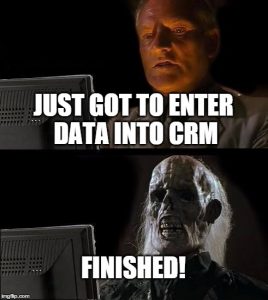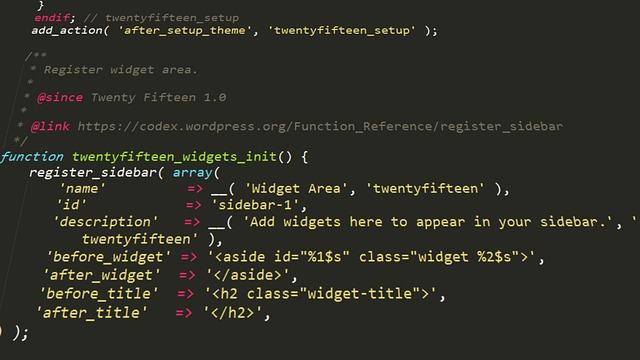Can Customer Relationship Management (CRM) truly be considered a part of Artificial Intelligence (AI)? If so, what implications does this have on business operations and customer engagement strategies? How far has the integration of AI reached into CRM systems?
The primary issue is the blurred line between CRM as a tool for managing customer relations and AI as an advanced technology that increasingly plays a role in these tools. According to a 2019 article from Salesforce, AI is already being used in CRM software to automate various tasks, enhance communication, and provide predictive analytics. A study by Market Research Future (2021) indicates that these integrations have led to impressive growth in the AI in CRM market. However, the extent to which CRM is part of AI is not clearly defined. This raises a question: Is the integration of AI in CRM so profound that we can now consider CRM being subsumed under AI, or are these two elements separate with overlapping functionalities?
In this article, you will learn about the relationship between CRM and AI, and how AI technologies have been integrated into CRM systems. Topics covered include AI’s role in enhancing CRM functionalities such as data analysis and prediction, automation of mundane tasks, provision of personalized customer experiences, and how businesses can leverage these capabilities for their benefit.
Additionally, we will delve into the possible future of AI and CRM, including challenges that businesses might face in fully integrating AI in their CRM systems and proposed solutions to these challenges. In conclusion, we aim to provide a comprehensive understanding of how CRM, traditionally a human-driven process, is being transformed by AI technologies.

Understanding Basic Definitions: CRM and AI
Customer Relationship Management (CRM) is a strategy used by businesses to manage and improve their relationships with customers. It typically involves using technology to organize, automate, and synchronize sales, marketing, customer service, and technical support.
Artificial Intelligence (AI), on the other hand, is a branch of computer science that involves creating and designing machines capable of carrying out tasks that would typically require human intelligence. This includes tasks like problem-solving, pattern recognition, and language understanding.
Although AI can be integrated into CRM systems to make them more efficient and effective, CRM itself is not a part of AI. They are two separate concepts that can work together to provide significant benefits for businesses.
Squashing Misconceptions: AI and CRM Are Not One and the Same
AI’s interaction with CRM definitely breaks the barriers of tradition, propelling businesses towards a more tech savvy and efficient future. CRM or Customer Relationship Management is not inherently a part of AI (Artificial Intelligence), but they certainly do have a miraculous intersection in the field of business processes. This combination allows businesses to more effectively manage their interactions with current and future customers.
Business enterprise applications
Microsoft 365 Apps for Enterprise
Enterprise Business apps generator
AI-Driven CRM Capabilities
Cognitive technologies offered by AI can infuse CRM systems with incredible predictive capabilities. The integration of AI technologies can drastically improve the functionality of CRM by automating responses, predicting customer behaviors, and providing helpful insights for customer service representatives. This allows businesses to seamlessly interact with customers, improve client relations, and ultimately drive revenue growth. Gone are the days when CRM was just a database system; AI has transformed it into an insightful customer success tool.
Breaking the Traditional Barriers
The intersection of CRM and AI is breaking traditional barriers on many fronts. With AI, businesses can now leverage machine learning and data analytics to understand customers more intimately, predicting their needs and desires to provide more personalized experiences. This includes harnessing the power of AI to analyze purchasing trends, customer preferences, and even sentiment analysis from customer interactions.
AI can also automate many routine tasks, freeing up employees to focus on more strategic duties. No longer are businesses shackled by outdated, manual CRM processes. AI facilitates a significantly more effective and efficient CRM approach.
Some Noteworthy Benefits
- Enhanced Customer Experience: By having more personalized interactions, businesses can improve customer satisfaction and loyalty.
- Improved Decision Making: With AI-driven insights, businesses can make better, data-driven decisions that can lead to increased sales and growth.
- Increased Efficiency: Automating routine tasks enables businesses to achieve greater efficiency, allowing CRM to be more effective and less time-consuming.
The merging point of AI and CRM is indeed miraculous, as it opens a world of new possibilities for businesses to improve their performance, customer service, and ultimately bottom line. This intersection not only operates to break traditional barriers but also to shape the future of customer relationship management.
An Intricate Web: Understanding Where CRM Ends and AI Begins
Is AI Having an Impact on CRM?
Have you ever pondered the depth and breadth of influence that artificial intelligence (AI) has on customer relationship management (CRM)? A keen observation points to the pace at which AI is revolutionizing CRM. CRM, the crux of business interactions and information exchange, is now being powered by AI, providing an unprecedented level of customer understanding and intelligent business dynamics. The accelerated shift towards digitalization underlined by the global pandemic has only propelled this trend, making AI-empowered CRM not only the future, but the present.
Identifying The Bottle-Neck
Despite the promising benefits of AI-empowered CRM, there are glaring challenges that businesses need to confront. The primary issue revolves around data management. Copious amounts of data fed to AI tools can lead to highly efficient business decisions. However, the erroneous feeding and mishandling of this data can result in unfavorable outcomes, drawing decisions away from being customer-centric, thus defeating the entire purpose of a CRM system. Data security also poses a significant threat with businesses dealing with sensitive customer information and stringent data protection laws, further complicating the AI integration into the CRM systems.
Illustrations of Victorious Implementations
Nevertheless, there are stellar examples of businesses that have successfully integrated AI into their CRM system to unlock their full potential. Amazon, for instance, uses AI-powered CRM to engage in a deeper, more personalized relationship with their customers. By analyzing purchasing trends and browsing behaviors, they can predict what a customer may need next, enabling personalized recommendations that enhance the shopping experience. From timely fashion suggestions to grocery cart recommendations, Amazon’s AI-powered CRM is an exemplification of next-level personalization.
Another great example is Starbucks, which uses predictive analytics, powered by AI, to customize offers for its customers. Through its mobile app, Starbucks analyzes individual customer preferences and purchase history to tailor unique offers, increasing customer engagement substantially. This approach also helps in inventory management as predicting customer behavior allows for efficient stock control. Both these examples stand as testaments to the impressive capabilities of an AI-powered CRM system in modern business dynamics.
CRM and AI: Unraveling the Complicated Relationship Between Two Powerhouse Technologies
Transformative Potential Of AI In CRM: A Sneak Peek
Isn’t it intriguing how Artificial Intelligence (AI) has transformed the technology world and become a significant player in influencing various functionalities? One of its most impactful changes has been in the field of Customer Relationship Management (CRM). What was once a series of manual data entry and cumbersome tasks is now bestowed with high efficiency, intelligence, and predictability powered by AI. This remarkable technology has the potential to scrutinize enormous data sets rapidly, generating insights that humans could easily overlook. AI enables CRM to move beyond basic automation by opening up avenues for personalized customer interaction, better decision-making, and improved outcomes.
The Dilemma: CRM Without AI
Without the integration of AI, CRM faces multiple challenges that hamper its effectiveness and overall efficiency. Predominantly, the sheer volume of data that any CRM process has to handle is overwhelming. Sorting this data, extracting useful information, and making sense of it to improve customer interaction is, beyond doubt, a Herculean task without AI. Additionally, in today’s digital age, consumer behavior and preference are constantly evolving. Keeping up with these trends, predicting them, and leveraging them for enriching the user experience can be strenuous without AI. The inability to provide a personalized experience may lead to low customer satisfaction, reducing the effectiveness of CRM significantly. AI has already proven its merit in addressing these challenges, transforming the way businesses operate and manage customer relationships.
In Action: AI-fueled CRM Success Stories
Does AI actually improve CRM effectiveness? Absolutely, the global business scenario is peppered with success stories of companies leveraging AI in their CRM processes. Companies like Amazon and Netflix are fine examples of how AI can transform the face of CRM. Amazon’s recommendation engine, backed by intricate AI algorithms, analyses customer behavior and preferences, recommending products that not only personalize the user experience but also enhance customer engagement. Similarly, Netflix’s AI-based CRM system provides highly personalized movie and series recommendations based on viewing habits, thus leading to an increased viewer base and overall user satisfaction. Companies like Coca-Cola and Starbucks are using AI combined with CRM to analyze social media trends and customer preferences. These real-world examples show the monumental potential of integrating AI with CRM. As more and more industries realize this potential, a transformation in the CRM landscape is clearly underway.
Conclusion
As we reach the conclusion of our article, let’s ponder an intriguing question: what if we could harness the capabilities of artificial intelligence to create a highly personalized, efficient approach to customer relationship management?
Artificial Intelligence’s ability to anticipate customer needs and preferences, streamline workflows, and ultimately increase customer satisfaction levels has undoubtedly revolutionized the field of customer relationship management (CRM). It’s compelling to see how this harmonized blend of CRM and AI can shape the future, inspiring businesses to broaden their horizon and stride towards an era where automated, yet personalized customer interaction is the norm. The prospects seem limitless, don’t they?
We appreciate your valuable time spent reading our content and we’d like to extend an invitation to you to stay with us on this groundbreaking journey. Each of our posts seeks to provide insights that stimulate your curiosity and keep you informed about the latest advancements in AI and CRM. Your constant support inspires us to delve deeper and explore further. Stay tuned for our forthcoming posts that promise to deliver fresh perspectives and greater insights into this exciting intersection of technologies. Thank you for being a part of our growing community, and we can’t wait to engage with you even more!
F.A.Q.
1. What is CRM?
CRM, or Customer Relationship Management, is a strategy or a set of tools used by businesses to streamline their interactions and relationships with customers. It helps businesses manage customer data, sales, customer support, and more, all in one place.
2. How is CRM related to AI (Artificial Intelligence)?
AI can greatly enhance CRM tools by adding capabilities such as predictive analytics, automated responses, personalized marketing, and more. Thus, while CRM is not inherently a part of AI, the use of AI can greatly improve the functionality and efficiency of CRM systems.
3. Can a CRM system function without AI?
Yes, a CRM system can function without AI. CRM is primarily about the management of customer relationships and data, which can be conducted without AI. However, AI can add significant enhancements to CRM systems, such as automation and personalization.
4. What are some examples of how AI enhances CRM?
AI can enhance CRM in various ways, such as by predicting customer behavior based on past interactions, automating responses to customer queries, or personalizing marketing efforts based on customer preferences. These capabilities can help in providing more efficient and targeted customer service.
5. What are the benefits of incorporating AI into CRM?
Incorporating AI into a CRM system can lead to more efficient processes, improved customer service, and the ability to provide personalized customer experiences. It can also help businesses analyze vast amounts of CRM data to identify trends, customer preferences, and sales opportunities.



